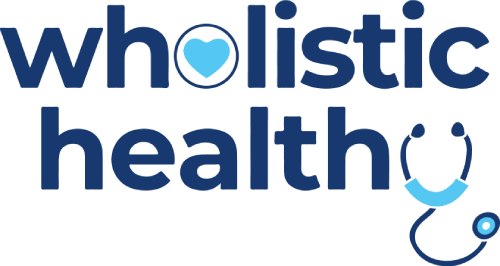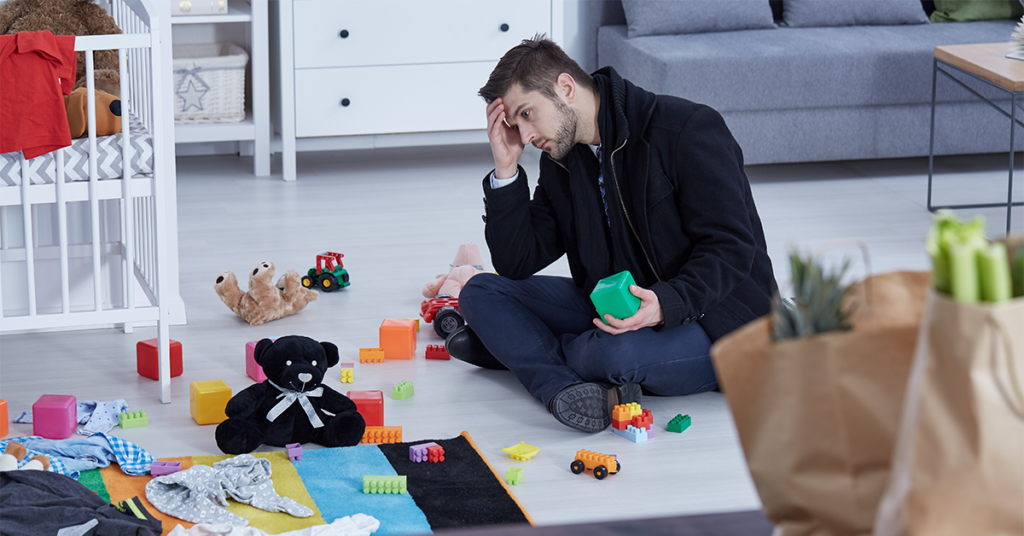Depression before and after the birth of a baby isn’t just something that affects women. Men often feel the same pressure as their partners, but how they cope and react may be different. But symptoms of paternal postpartum depression, which affects men, can often be treated.
According to the American Medical Association Journal, up to 10% of new fathers have mood changes – not as great as the percentage of new moms affected, but still a considerable number. Likely, men have always experienced paternal postpartum depression, but with society now being more accepting of men talking about emotions, we see more cases reported.
What causes paternal postpartum depression in men? Like women, changing hormone levels are a factor, but there are other reasons, too:
- Men are used to focusing their attention on their partner, and a new baby affects the equation. Moms usually bond with newborns quickly, while dads may take their time and feel like an outsider.
- New dads feel pressured to be good providers, which adds stress around employment and financial stability.
- Sometimes new dads feel guilty if they’re not instantly, visibly excited about a new baby in their life – especially when someone else notices.
- Lack of intimacy and sleep can influence a new dad’s mood.
If you’re a new dad worried about postpartum depression, here are some warning signs to watch for (many new moms experience the same):
- You get angry, irritated, or aggressive.
- Lack of interest in work or favorite pastimes.
- Working more than usual.
- Acting distant or self-isolating from family and acquaintances.
- Feeling cynical, discouraged, or frustrated.
- You feel hopeless, overcome, or sad.
Many of these symptoms can be managed with diet and lifestyle changes, medicine, psychotherapy, or ketamine therapy.
The Journal of the American Medical Association also reports that up to 26% of men have such depression three to six months after the baby’s birth. Far more men may experience paternal postpartum depression than women do simply because of the stigma involved and that men are less likely than women to report mental health issues. Men are expected to be strong, silent family supporters, and the pressure of a new baby in their lives is more than some can withstand.
Ketamine for Depression
Ketamine is a powerful sedative traditionally known for its use as a human and animal anesthetic. In the 1960s, shortly after it started being used, it was discovered that the medicine offered temporary psychedelic or mind-altering experiences that changed a person’s perception of reality and the world around them. A version of the treatment was approved by the U.S. Food and Drug Administration in 2019 for treatment-resistant depression.
If you’re a new father and think you’re depressed after welcoming a baby into your life, talk with your healthcare provider for diagnosis and treatment options. Your healthcare provider will perform a thorough medical examination, including blood tests and checking for thyroid functionality, plus a depression screening and other tests. You may also be referred to a mental health specialist for diagnosis.
Identification and Reduction Options
Historically, pregnant women receive more care before and after the birth of a baby than fathers. While overcoming social norms and expectations is complex, the effect of paternal postpartum depression shouldn’t be dismissed.
If you’re an expectant father, there are some steps you can take to ensure paternal postpartum depression doesn’t negatively affect your life, the pregnant mom’s life, or the life of the baby.
- Be open to the possibility you may be depressed and recognize typical warning signs related to paternal postpartum depression.
- Talk with your healthcare provider openly and honestly about depression and its symptoms, be transparent about physical and psychological changes you may be going through, and how plans for the baby and your future family may be affecting you and the baby’s mother. These kinds of discussions should happen before childbirth.
- After the baby’s birth, but before mom and infant are discharged, talk to a healthcare provider or mental health specialist about what’s going on.
It’s vital that new fathers aren’t overlooked. Depression can have devastating consequences if left unchecked.
To counteract paternal postpartum depression, consider self-help steps like setting a regular sleep schedule, talking about your feelings, and making certain your partner’s needs – and the baby’s needs – are addressed. If you’ve been diagnosed with paternal postpartum depression, treatment may include talk therapy, diet or lifestyle changes, or ketamine infusion therapy.

